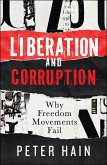Part I: The Causes of Frequent Military Coups in Africa
The study commences by offering an extensive sociopolitical analysis of military coups in the African continent. It is recognised that military coups have been a recurring phenomenon in the continent's postcolonial history, garnering significant international attention. The history of colonialism, arbitrary borders, ethnically varied states, economic limitations, a lack of democratic traditions, and Cold War politics are all factors that contribute to this trend. The comprehensive understanding of African military coups necessitates adopting an interdisciplinary framework integrating political science, history, and sociology.
Part II: An Examination of the Anti-French Trend
The study investigates if anti-French or democratic disillusionment is behind the recent support for military coups. This inquiry critically examines the policies of France in Africa and their consequential implications, delving into the concept of "France-Afrique" as a mechanism of exerting control. The author also examines the eventual role that other major world powers like the USA, China, and Russia might have played in these coups.
Part III: "France-Afrique" Policy.
This section comprehensively analyses the "France-Afrique" policy and its historical backdrop. It examines how France-Afrique is viewed as a control system, its effects on the economies in which it operates, and the larger geopolitical environment in which it functions. The paper additionally names important figures implicated in the France-Afrique connection and posits that this policy may be experiencing a waning trajectory.
Part IV: Geopolitical Factors
The research continues by analysing the geopolitical variables that underlie the occurrence of these anti-French coups. This inquiry raises concerns regarding the beneficiaries of these coups and examines the involvement of global forces within this framework.
The book thoroughly analyses the complicated causes surrounding military coups in Africa and the rising anti-French sentiment witnessed during these events. Through an analysis of historical, sociological, and geopolitical aspects, this study offers unique insights into a prominent issue within current African politics.
Dieser Download kann aus rechtlichen Gründen nur mit Rechnungsadresse in A, B, CY, CZ, D, DK, EW, E, FIN, F, GR, H, IRL, I, LT, L, LR, M, NL, PL, P, R, S, SLO, SK ausgeliefert werden.









